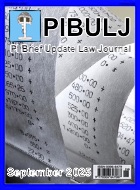£1 million settlement in vaginal mesh implant case renews calls for a settlement scheme - Nancy Kelehar, Temple Garden Chambers

17/11/23. A 59-year-old woman has reached a settlement of over £1 million in relation to medical issues that arose as a result of a vaginal mesh implant. She received the transvaginal tape (TVT) mesh implant at University Hospitals Coventry and Warwickshire (UHCW) in 2009 following a hysterectomy. This procedure was recommended as treatment for a diagnosis of uterine prolapse which was causing lower abdominal discomfort and increased frequency of urination.
By 2017, her incontinence had returned and she had started to suffer pain and bleeding as a result of the mesh eroding into her vaginal wall. In 2020, the mesh was fully removed but she continues to suffer with incontinence and chronic pain.
Her claim was brought against UHCW on the basis that:
- She was never a suitable candidate for the mesh implantation surgery;
- In any event, the procedure was premature and unnecessary as other treatments were not fully explored or considered; and
- Her consent to the procedure was given on a false basis as she was not informed about all of the potential side effects and/or complications.
She had evidence that the signed consent form that the hospital had kept on her record had been altered after she had signed it to include information about other risks. She still had the original version of the form that she signed which did not set out the same information.
Whilst there is limited information on how the settlement figure was arrived at, it is assumed that her pain and suffering would have been taken into account and a statement from UHCW suggests that at least part of the settlement is intended to cover ongoing care needs.
Other Cases
It appears that there are thousands of other women who underwent a similar procedure whereby they were fitted with vaginal mesh implants which have caused complications. Other women are bringing similar claims on the basis that the treatment was not suitable for them and problems have arisen post-surgery, including pain and bleeding. In addition, the removal of the mesh, as in the above case, can itself cause further issues.
Due to these problems, since 2019, the NHS has paused vaginal mesh procedures to treat urinary incontinence and pelvic organ prolapse.
Settlement Scheme?
This is reportedly the first seven-figure vaginal mesh-related settlement.
There have been calls for a settlement scheme to be created by the Government. There is currently no such scheme, therefore each woman bringing a claim requires their own separate legal advice and representation.
The Government commissioned an Independent Medicines and Medical Devices Safety Review following which a report was published in July 2020. As part of the review, Baroness Cumberlege looked at how the health system responds to reports from patients about side effects from treatments including vaginal mesh-related procedures.
In response to the report, the Government fully or partially accepted 7 of the 9 strategic recommendations but rejected the creation of an independent redress scheme for those impacted. Last year, the Government said that they would review their position on this.
Image: public domain from https://pixabay.com/en/hospital-ward-hospital-medical-room-1338585/












![Appeal judge rules that credit hire company has no costs liability following a finding of fundamental dishonesty in personal injury case: RSA v. Fastrack Solutions Limited [2023] 4 WLUK 92 - David Bowden, Erimus Chambers](/content/images/resized/images/stories/carkeys_72_72.jpg)


